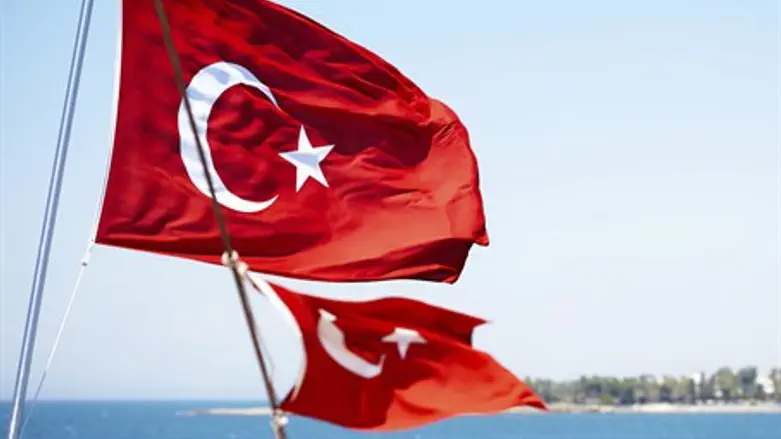
The Syrian government on Monday accused Turkey of allowing "terrorists" to freely cross the border, after Ankara said the wife of one of the Paris attackers entered Syria from Turkey earlier this month, The Associated Press (AP) reported.
Turkey's Foreign Minister Mevlut Cavusoglu said Monday that the woman, Hayat Boumedienne, arrived in Turkey from Madrid on January 2 before crossing into Syria on January 8, the day after the attack on the offices of satirical magazine Charlie Hebdo.
In response, the Syrian Foreign Ministry said that Turkey had aided terrorists who "shed the blood of Syrians and innocent people worldwide".
Damascus called on the international community "to stop Turkey's destructive policy," as it put it.
Boumeddiene, 26, is the lone remaining suspect wanted in connection with the France terrorism spree, which included a shooting rampage at the Charlie Hebdo satirical news magazine on Wednesday, the killing of a French policewoman Thursday, and a dual hostage crisis in a printing company and a kosher supermarket Friday.
CCTV footage which surfaced on Monday corroborates remarks from Turkish officials Saturday night, who said that Boumeddiene had arrived in Turkey and then made her way to Syria - and that during routine screening of passengers, the couple were flagged by Turkey's Risk Assessment Center and a decision made to maintain surveillance on their movements after landing.
Syria’s comments are a reflection of the deterioration of ties between Syria and Turkey ever since the beginning of the Syrian civil war.
Turkey is a strong backer of Syrian rebels fighting to overthrow President Bashar Al-Assad, whose government views all of its armed opponents as "terrorists."
Turkish President Recep Tayyip Erdogan has several times called on Assad to resign. In August of 2013 Erdogan, then the Prime Minister of Turkey, said that the goal of any military intervention in Syria should be to topple Assad’s regime.
The heightened tensions between Turkey and Syria have led to several cross-border incidents, including the explosion of a Syrian mortar in Turkish territory, which killed five civilians.
The Turkish army responded by attacking several targets in Syria. Turkey's parliament later gave the government the green light to use military force against Syria if necessary.
In another incident, Turkey intercepted a Syrian Airbus A320 flying from Moscow to Damascus and escorted it to the Esenboga Airport in Ankara.
Turkey later claimed it had seized "objectionable cargo" aboard the Syrian passenger plane. Syria, in turn, accused Turkey of lying.